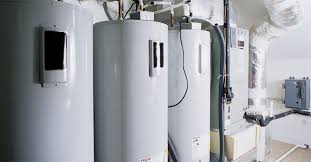The Differences Between Traditional and Tankless Water Heaters

Traditional and tankless water heaters are two options to choose from when installing hot water supply systems. Each heater has unique advantages, but tankless units are more energy efficient and require less space than traditional tank-based modes. Plumbing companies also offer modern energy-efficient tank-style heaters if you prefer a storage tank without running up your utility bill. Here are some differences between traditional and tankless water heaters:
What Is a Traditional Water Heater?
Traditional water heaters are tank-based systems used in many homes. These water heaters feature insulated storage tanks that hold the water. To keep the water hot, the tanks are constantly heated. A pipe connected to the top of the tank delivers the hot water to your bathroom, kitchen, sinks, and other water outlets. Traditional water heaters use electricity or gas to heat the storage tank and feature temperature and pressure-release valves. The valves open to keep the temperature and pressure within the preset levels.
What Is a Tankless Water Heater?
Tankless water heaters are a modern choice for many homeowners and plumbing companies because of their energy efficiency. Also known as on-demand water heaters, tankless systems feature high-powered burners capable of heating water as it passes through a heat exchanger. You don’t need a storage tank because the water is heated rapidly as it is delivered to your faucets. Like traditional systems, tankless water heaters use electricity or natural gas to heat the water. The units are much smaller and can be installed closer to the point of use.
How Are the Two Heaters Different?
The main difference between traditional and tankless water heating systems is the storage tank. Traditional water heaters feature a storage tank, which requires a location with sufficient space and a heating and storage system to keep the water hot. Tankless water heaters don’t use a tank, making them ideal for more compact spaces. Because of this distinction, traditional and tankless heaters have different features, installation requirements, capacities, and efficiencies. Below are three top differences to note when installing a new water heater:
1. Size and Installation
Traditional water heaters have storage tanks of different sizes, which determine the number of gallons of water they can hold. These tanks require a dedicated installation space like utility closets, basements, or garages. The site of installation must also provide enough room for repairs and maintenance. If you prefer traditional units, choose a size that will fit into your available storage space. Tankless heaters are small, compact units you can wall-mount or install almost anywhere, including right next to the point of use. This advantage reduces the distance hot water travels from the unit to your faucet.
2. Capacity and Water Supply
Traditional systems are limited by the capacity of the storage tank. The system requires time to refill and reheat water when the hot water in the tank is depleted. This recovery time can result in varying delays depending on the tank’s size and heating element. Tankless water heaters provide a continuous supply, so you’ll never run out of hot water unless your unit malfunctions. These units feature unique flow rates, which denote the volume of hot water they can supply at any given time. Select units with the right flow rate for your household’s peak demand.
3. Cost and Energy Efficiency
Traditional water heaters are subject to standby heat loss from the storage tanks because the water must be kept within the preset temperature. This heat loss results in more energy consumption regardless of how good the insulation may be. Tankless systems are more energy-efficient because they heat water on demand. They also cost more to purchase and install, especially when upgrading from tank-based units. Traditional systems generally have a lower upfront cost than tankless units.
Consulting With Plumbing Companies
The decision to install a new water heater calls for professional consultation with a plumber. Learn about the different types of traditional and tankless water heaters to determine the right system and model. Reach out to leading plumbing companies today to find a suitable water heater for your home.




